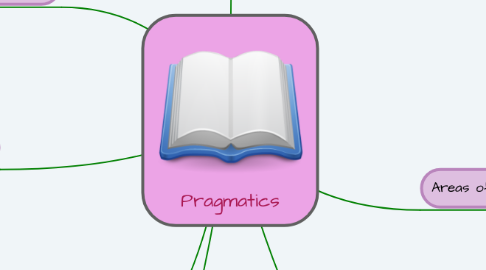
1. Component disciplines
1.1. phonetics
1.2. phonology
1.3. morphology
1.4. syntax
1.5. semantics
2. Interdisciplinary fields
2.1. neurolinguistics
2.2. psycholinguistics
2.3. sociolinguistics
2.4. anthropological linguistics
3. Making of linguistic choices
3.1. Key notions
3.1.1. variability
3.1.2. negotiability
3.1.3. adaptability
3.1.3.1. contextual correlates
3.1.3.2. structural objects
3.1.3.3. the salience
4. Formative traditions
4.1. French school of pragmatics
4.1.1. "There is nothing in language that was not first in language use."
4.2. Prague school linguistics
4.2.1. information structuring, study of intonation
4.3. Firthian linguistics
4.3.1. view of speech as a social instrument both for "sense" and "nonsense", work and play
5. Relationship to a real world
5.1. descriptive
5.2. positioning of the utterance in a surrounding reality
6. Areas of research
6.1. Traditional
6.1.1. deixis
6.1.1.1. temporal
6.1.1.2. spatial
6.1.1.3. social
6.1.1.4. attitudinal
6.1.1.5. discourse
6.1.2. speech acts
6.1.2.1. assertives
6.1.2.2. directives
6.1.2.3. commissives
6.1.2.4. expressives
6.1.2.5. declarations
6.1.3. implicit meaning
6.1.3.1. tools
6.1.3.1.1. presupposition
6.1.3.1.2. conventional implicature
6.1.3.1.3. non-conventional conversational implicature
6.1.3.1.4. logical implications
6.1.4. conversation
6.1.4.1. sequencing of turns
6.1.4.1.1. openings
6.1.4.1.2. closings
6.2. Additional
6.2.1. politeness
6.2.2. argumentation
